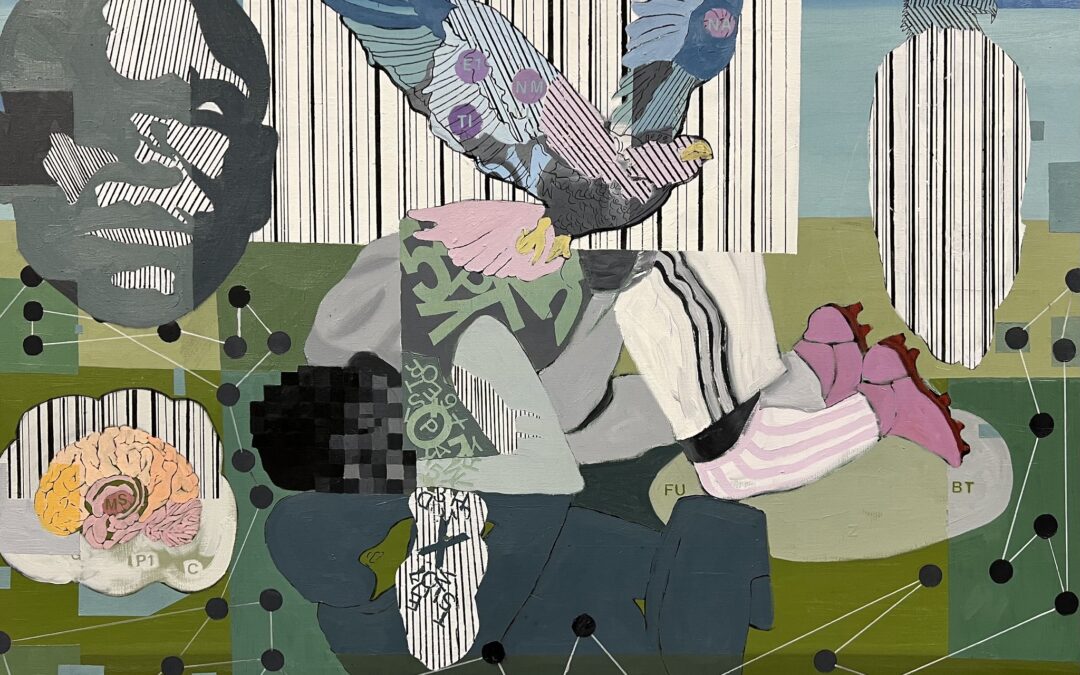Date/Time
Date(s) - 01/27/2023 - 03/01/2023
12:00 am
Location
Buffalo Arts Studio
Categories
Opening Reception, Friday, January 27, 2023, 5:00—8:00 pm
Part of M&T Bank 4th Friday @ Tri-Main Center
Awarded Best Exhibition, Small Gallery in Buffalo Spree’s Best of WNY 2023.
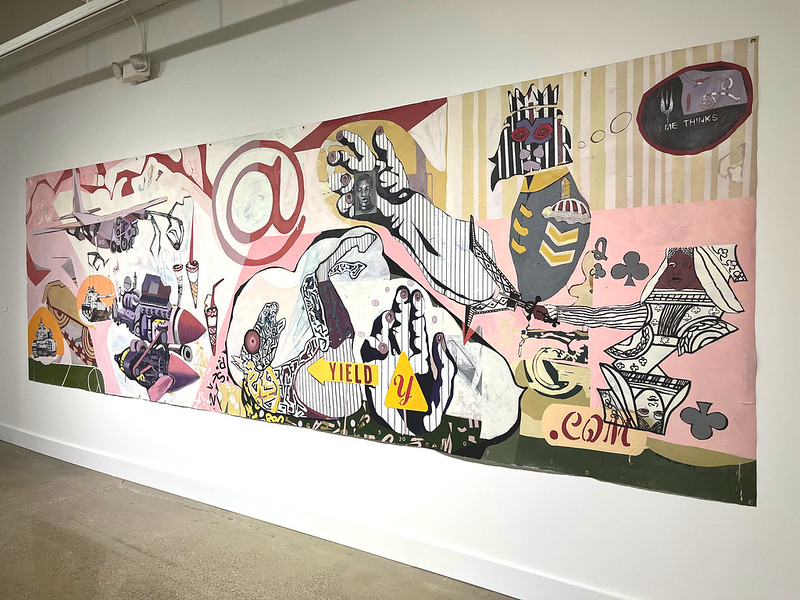
Life Points
Curatorial Essay by Shirley Verrico
George Afedzi Hughes’s drawings, paintings, and assemblages explore shared narratives that cut across racial differences and highlight the connection of contemporary global conflicts to colonial history. Using humor and metaphor, Identity, Power, and Reconciliation juxtaposes personal narratives, historical tropes, and pop culture references in ways that address the complex and nuanced issue of racial reconciliation. Hughes grounds his work in the history of colonialism, highlighting parallels between imperialism’s brutal past and contemporary global conflicts.
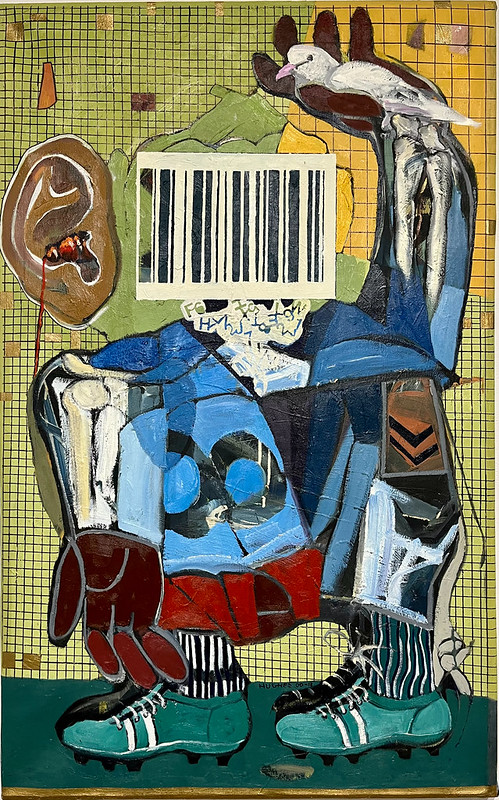
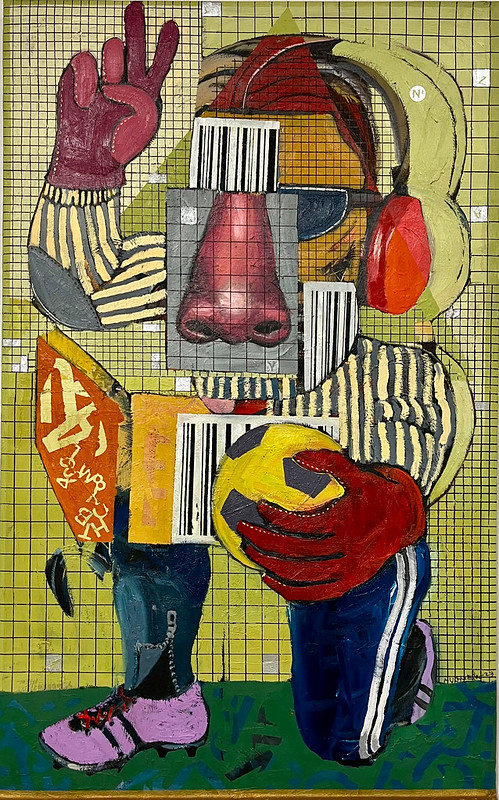
Hughes’s own identity is layered and complex. Born and raised in Ghana, Hughes identifies as Black, African, Ghanaian, Fante, and African American. Additionally, Hughes recognizes the identities projected onto him; immigrant, minority, and “other.” His artwork reflects this complexity through systematic yet accessible iconography. Many of the paintings feature fragmented barcodes, a ubiquitous part of today’s economy, which can represent data in a visual, machine-readable form. The barcode system was designed for efficiency, removing human error from much of the retail experience. Hughes layers barcodes into compositions that include references to sports and celebrities. In paintings such as Number 8 and Victory, Hughes’s figures are pressed against the picture plane and often fragmented to fit within the confines of the canvas. The barcodes are integrated into the compositions, remaining immediately recognizable due to their consistent verticality. Both his compositions and his symbols connect the treatment of athletes within international soccer to the enduring legacy of colonialism and the dehumanizing commodification of black and brown bodies.
Throughout all of Hughes’s work, he connects global and historical concerns to his own experiences. Hughes was an athlete himself and he continues to be an avid soccer fan. The barcode is also a deeply personal reference. During the first four years, Hughes lived in the US, he worked in a warehouse driving a forklift and scanning barcodes eight hours a day. It is easy to imagine how the collective hours of seeing and scanning these codes would leave a lasting imprint on his consciousness that continues to resurface in his work many years later.
Hughes investigates the evolution of postcolonial reconciliation through sports imagery as a civil contest contrasted with war and its fatal consequences. He draws parallels between colonial violence and contemporary global conflicts in his large-scale paintings including Yield, which fills the entire gallery wall at 228 x 72 inches. Tanks roll over the landscape and a jet flies overhead dropping bombs from imagined mechanical arms. The chaos is amplified by a huge @ symbol placed in the center of an implied sky. On the bottom right of the huge canvas Hughes has painted “.com.” Together, these symbols point to the remote nature of contemporary warfare while leaving space for the viewer to complete the url and implicate the appropriate corporate entities both facilitating and profiting from the countless global conflicts.
The planes and tanks are also references to Hughes’s childhood. Recent sculptural installations incorporate fragments of wood, collage, toys, and text that are glued together. These free-form sculptures glean ideas from popular culture/media. The toy planes in Puzzle Pieces: Planes I-XI were purchased from a big box store in the US and are nearly identical to the ones Hughes played with as a boy in Ghana. The military equipment is also a reference to the repurposed army barracks that served as his studio while he was living and teaching in Oklahoma. These symbols serve as “life points,” connecting Hughes’s identity and his experiences over the years and across the globe.
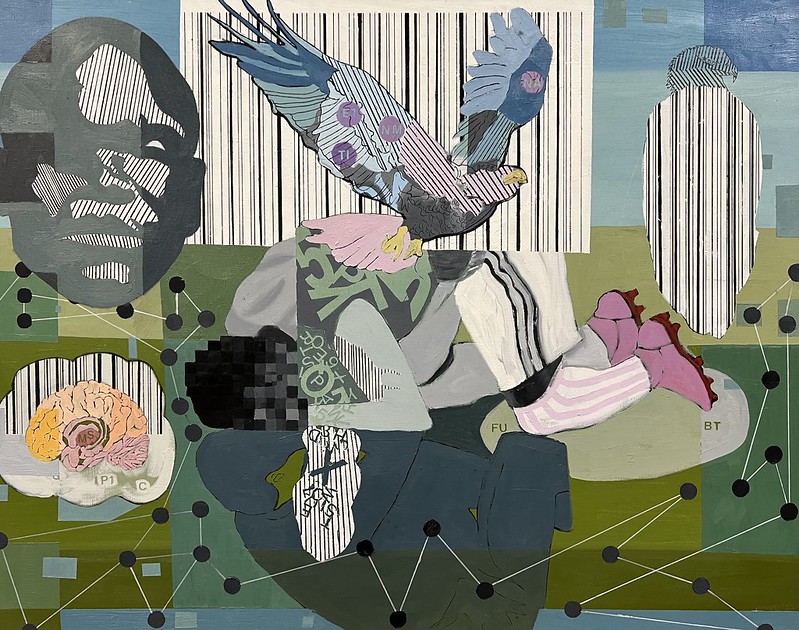
Hughes and his work also speak to his own journey of reconciliation after a serious accident in 2017 left him largely paralyzed from the neck down. After years of intense physical therapy, Hughes has regained limited use of his arms and legs. Although he still requires skilled assistants in order to paint and teach, Hughes continues to be prolific. In his artist talk, Hughes notes, “We need to reconcile our personal histories, our memories, and our culture. I have had to reconcile the trauma of my accident and my lack of mobility. You have to continue to contribute to society despite obstacles. For me, this requires artistic humor and metaphor.”
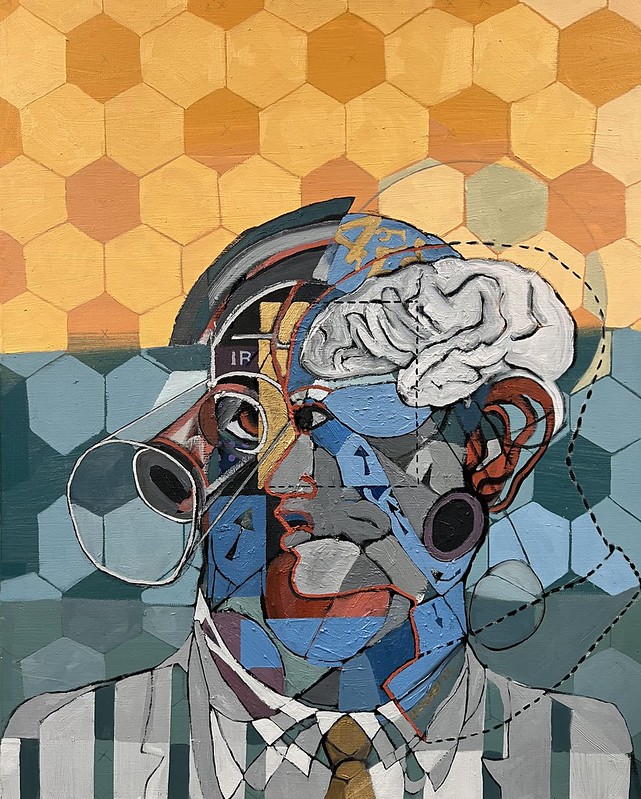
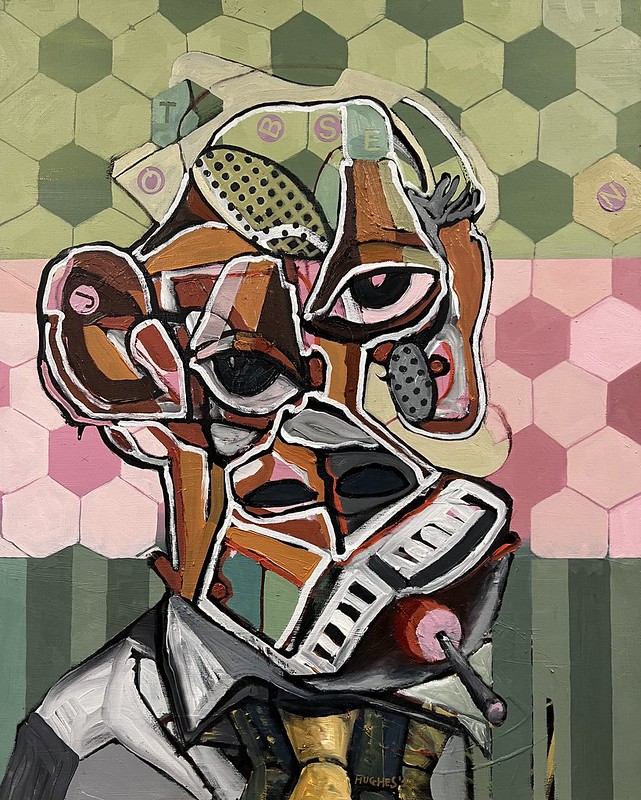
George Afedzi Hughes was born and raised in Ghana and studied painting at The Kwame Nkrumah University of Science and Technology, College of Art (1985–1991) where he earned a BA in Painting and Drawing and an MA in Art Education. He relocated to the United States in 1994 and earned his MFA in Painting from Bowling Green State University (2001). Hughes is currently an Associate Professor of Painting at SUNY Buffalo. His paintings, performances, and installations have been shown in Canada, China, Denmark, Dubai, England, France, Germany, Ghana, Holland, Northern Ireland, Nigeria, Portugal, South Africa, Sweden, Uruguay, Wales, and the USA. Hughes is represented in Germany by Artco Gallery, in Portugal by Influx Contemporary Gallery, in Ghana by Artists Alliance Gallery, and in the USA by Skoto Gallery.
Buffalo Arts Studio receives exhibition support from the Cameron and Jane Baird Foundation, Community Foundation of Greater Buffalo, Erie County Cultural Funding, Garman Family Foundation, John R. Oishei Foundation, M&T Bank, the National Endowment for the Arts, and the New York State Council on the Arts.
Part of the Displacement: Reclaiming Place, Space, and Memory Exhibition and Workshop Series, which is funded in part by the National Endowment for the Arts.
Exhibition catalog available here.
George Hughes, Pink Cleats, Post-Exhibition Community Commentary by Quaran Mingo

